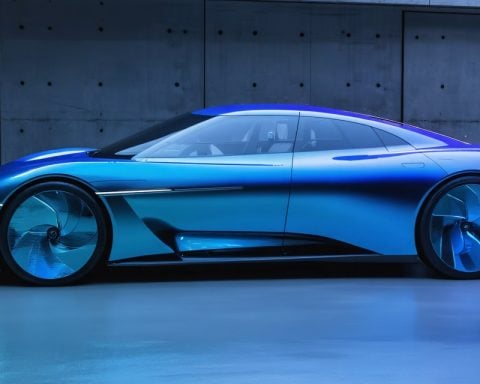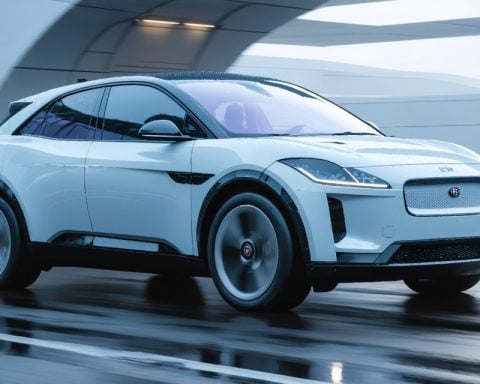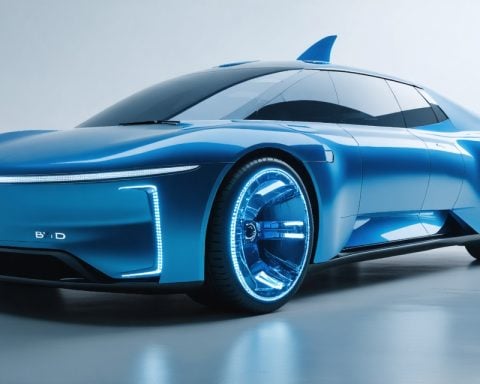The Reality of Electric Vehicle Sales in the UK
In a twist for the electric vehicle (EV) market, recent changes proposed by the UK government are raising concerns over future demand. Pod Point, a leading charger company primarily owned by EDF Energy, reported a revenue dip to £53 million in 2024, falling short of their £60 million goal due to sluggish car sales. As a result, the company’s shares plunged drastically.
The automotive industry has been feeling the squeeze for over a year, especially for electric models, which often require a higher initial investment than their gasoline counterparts. Manufacturers are pushing the UK government to ease strict sales mandates, known as the zero-emission vehicle (ZEV) mandate, which obligate them to sell a set percentage of electric cars annually.
With the government affirming that all UK carmakers will meet their targets, albeit through flexible compliance measures, the pressure on EV sales continues. The Department for Transport noted a record year in 2024 with a substantial increase in EV sales, but industry leaders like Mike Hawes are warning of intense pressure as they invest heavily to offer discounts and attract buyers.
Pod Point’s CEO, Melanie Lane, highlighted a challenging environment for EV growth, citing a weaker-than-anticipated private EV market impacting home charger sales. As discussions around the ZEV mandate unfold, uncertainty looms over the industry’s trajectory, prompting calls for reassessment to foster a flourishing electric vehicle landscape in the UK.
Impact on Society and the Global Economy
The electric vehicle (EV) landscape in the UK serves as a pivotal case study in the broader context of the global transition toward sustainable energy and reduced carbon emissions. As consumers increasingly prioritize environmentally friendly options, the demand for EVs represents more than just a shift in automotive preferences—it symbolizes a growing cultural consciousness around climate change and sustainability.
However, the struggles of the UK’s EV market, marked by recent revenue dips and sales slowdowns, suggest potential repercussions for related sectors, including manufacturing and energy. Companies like Pod Point depend not only on higher EV sales but also on the installation of charging infrastructure. A downturn in car purchases can stall investments in charging networks, further stifling the EV market’s growth and the broader transition to cleaner technologies.
Environmentally, the implications could be profound. Transitioning to EVs is crucial for the UK’s commitment to emissions reductions; failure to bolster sales may hinder progress toward meeting net-zero targets. Additionally, as manufacturers seek regulatory relief from stringent mandates, there could be delayed advancements in EV technology, undermining long-term ambitions for sustainable transportation.
Looking ahead, future trends may reveal a bifurcated market where only those manufacturers who adapt swiftly to consumer demands for affordability and accessibility will thrive. As more players enter the EV space, innovation may spark reductions in production costs, fostering a more competitive environment. The challenge lies in balancing McKinsey’s forecasted rise in global EV adoption with the UK’s current market dynamics, navigating both economic imperatives and environmental accountability.
The Future of Electric Vehicles in the UK: Challenges and Opportunities Ahead
The Current Landscape of Electric Vehicle Sales in the UK
The electric vehicle (EV) market in the UK is experiencing a pivotal moment. Despite a reported record increase in sales, various factors are creating a complex environment for growth and investment. While the government emphasizes optimism around meeting the zero-emission vehicle (ZEV) targets, persistent challenges threaten to undercut these advancements.
Key Trends Impacting EV Adoption
1. Government Initiatives and Mandates: The ZEV mandate currently requires manufacturers to sell a certain percentage of electric cars. However, with the market showing signs of slowdown, many automakers are pressing for more leniency in these regulations. Compliance is becoming increasingly challenging given the higher upfront costs associated with electric vehicles compared to traditional gasoline models.
2. Performance of Charging Infrastructure: Companies like Pod Point are significantly affected not only by car sales but also by the growing needs for charging stations. With the dip in expected revenues, investment in charging infrastructure is critical for supporting future EV sales. The success of the EV market hinges not just on the cars themselves, but on the accessibility and efficiency of charging options.
3. Economic Factors: Broader economic conditions, including inflation and cost-of-living concerns, are leading to reduced consumer spending power. This directly impacts vehicle purchases, particularly for higher-cost options like electric vehicles.
Pros and Cons of Electric Vehicle Ownership
Pros:
– Environmental Benefits: EVs produce zero tailpipe emissions, making them a key component in the fight against climate change.
– Lower Operating Costs: Electricity is generally cheaper than gasoline, and EVs tend to require less maintenance than internal combustion engines.
– Government Incentives: Numerous subsidies and incentives are available for EV buyers, aiming to make the transition more appealing.
Cons:
– High Initial Investment: The upfront cost of EVs remains a significant barrier for many consumers.
– Range Anxiety: Despite improvements in battery technology, fears about the distance EVs can travel on a single charge persist.
– Charging Infrastructure Gaps: While the number of charging stations is increasing, availability and convenience still vary widely across the region.
Insights and Innovations
The recent trends indicate a shift in consumer preferences towards sustainable practices. More buyers are considering environmental implications when selecting vehicles. This shift is driving innovation in both vehicle design and charging technologies. As manufacturers invest in better battery technology, the range and efficiency of EVs are expected to improve, further appealing to a broader market.
Limitations Faced by the Industry
Despite the positive trends, the EV market faces limitations, such as:
– Supply Chain Challenges: Global supply chain issues, exacerbated by the pandemic, have led to delays in manufacturing and delivery of essential components like semiconductors.
– Market Competition: The influx of new entrants into the EV market diversifies options, but it also creates competitive pressure that may affect pricing and profitability for established brands.
Looking Ahead: Predictions for the EV Market
Analysts predict that the electric vehicle market in the UK will rebound in the coming years as technological advancements reduce costs and infrastructure improves. The continued commitment from the government to meet climate goals alongside consumer demand for sustainable transport solutions signifies a robust potential for growth.
Conclusion
While hurdles remain, the electric vehicle market in the UK is positioned for evolution. Industry stakeholders must navigate economic pressures and regulatory frameworks carefully to foster an environment conducive to EV adoption. The road ahead is complex but promises opportunities for a greener future.
For more insights into the electric vehicle market, visit Energy Saving Trust.

















